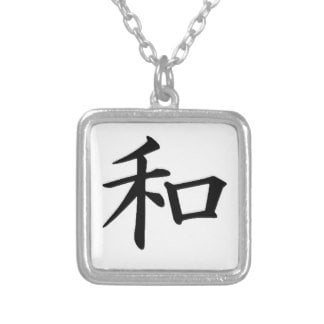Part of the challenge of studying a foreign language is learning to categorize and separate the new concepts you encounter. Take the word wa for example, which English speakers sometimes use as a term for peace or harmony, as in, “Hey man, you’re messin’ with my wa.” The character has other meanings, too, including “peace” as well as referring to Japan itself; it can be combined with other characters to form words like heiwa (peace), washiki (Japanese-style, as in a Japanese-style toilet), or washoku (Japanese food). A completely different word wa means circle or hoop, and in the context of Japanese relationships, a group, and it’s quite common to hear phrases like wa ga aru kara “I have to think of the whole circle of people” or wa ga kuzureru (“the circle of friends would suffer”). Finally, there’s wa, the grammitical “topic marker” used in Japanese sentences, which marks the topic of sentences, like kore wa enpitsu desu (“this is is a pencil”) or gohan wa? (“What about dinner?”).
















